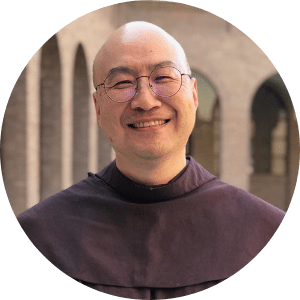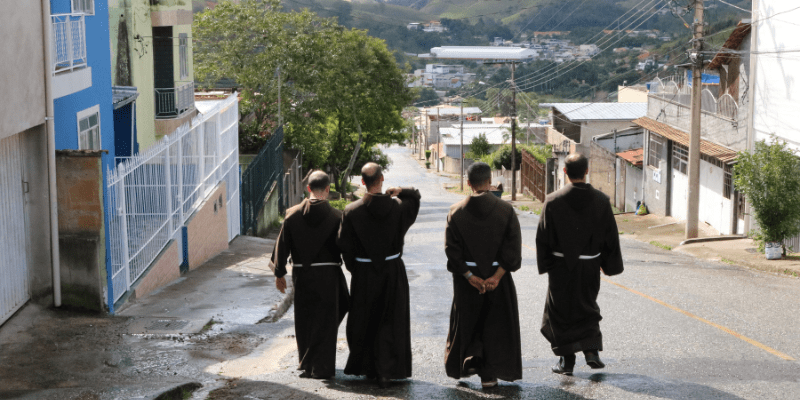
Br. Rufino Lim
Franciscan Friars
Assistant JPIC Office
My dear brothers, peace and all good! The Encyclical Laudato Si’, by Pope Francis, challenges us Franciscans in many ways. Before elaborating on this, there is something we need to remember. We have experienced many challenges in our Franciscan history, but I think they have played a positive role rather than a negative one. So, rather than ignoring or avoiding challenges, it is very important for us to have an open mind in order understand what those challenges are indicating to us. As friars, we use the perspectives of the Gospels and the life of our Seraphic Father St. Francis to discern what we need to do in our lives as a concrete response to present-day challenges.
As we all know, Laudato Si’ are the two opening words of the Canticle of the Creatures of St. Francis. I think the title of the Encyclical itself shows two aspects of the challenges contained in it. Put simply, the Encyclical says: “This world, created by God, out of His Goodness, is crumbling. In this situation, what do you think we need to do in order to praise the Creator?”
In other words, the first aspect of the challenges is to open our eyes and understand the critical crises that Mother Earth and all of humanity are facing. The second aspect is how we, as Christians and Franciscans who live in this situation, can profess our faith in God the Creator, or how (with St. Francis) we might pray, ‘Laudato Si’, mi Signore.’ Behind these two aspects of the challenge, I think Pope Francis asks us, “What do our prayer and our faith mean when the first source of Revelation — that is, our common home — becomes an uninhabitable place, and when the poor, who are the sanctuary of God, weep before the darkness of death?” I think that this question is at the heart of the challenges that the Encyclical presents to us. How would you answer this question? If you deny the first premise of the question, i.e., if you deny or ignore the fact that our common home and humanity are in serious crisis and that the causes lie with us humans, then your faith may well be fruitless because of its being contaminated with moral insensitivity and ignorance. Reality and faith must never be considered as separate, because humans and Creation are connected as one, so everything is interconnected.
Again, the first aspect of the challenge is to open our eyes to the social and ecological crises and sufferings of the Earth and of humankind, and to understand that they are ultimately caused by humans themselves. Do you agree with this premise? Or, do you live in your friary, in the comfort of your daily routine, being content with your version of “business-as-usual”? First of all, have you listened to what scientists have diagnosed as the cause of the COVID-19 pandemic? Do you know about the extreme weather events, desertification, extreme droughts, floods and super typhoons taking place around the world? Just Google the cause and impact of the destruction of the Amazon rainforest or of the wildfires in California and Australia. Or search for how many species on Earth are going extinct each year. It’s a matter of simple facts, so no one can deny it. You could also search for the number of environmental activists who were killed around the world in 2019. According to The Guardian newspaper, a record 212 people were killed while safeguarding the land, the environment, and the poor. I personally believe that these are modern prophets and martyrs. But by whom and for what reason have these activists, who work in a spirit of good will, been eliminated?
The Encyclical identifies various ecological crises one by one; for example, the various issues of pollution, water, climate crisis, and biodiversity. It points to the “throwaway culture” and a range of serious structural inequalities as the causes behind these crises. The current crisis cannot be addressed simply by resolving particular issues or inventing some cutting-edge technologies. We must understand structural injustices at various levels, and in particular we should free ourselves from the false belief that ecosystems and human life should be exploited for endless economic growth and economic profit. When the blind greed of Capital is uncontrolled, and the Religion that should raise a prophetic voice is drunk and asleep, eventually God will be alienated along with the Earth and the poor.
Laudato Si’ states that we all breathe one air only, and that the water we all drink is from one source. Equally, the food we eat and the land which gives us this food are also one. We are all interconnected beings living in one common home. We all are one body and one life. And God, the Creator, shines in Creation and sheds His light on us through it. The life of the Earth is our life. The suffering of the Earth is our suffering, and the tears of the marginalized are God’s tears and our tears.
The second aspect of the challenge concerns the Church’s response. Basing himself on Scripture and Tradition, Pope Francis first explains that integral ecology is based on a Gospel vision, that dialogue at various levels should take place and should include education towards a culture of creation. This will be a major challenge for those who are trapped in a traditional theology of salvation focused only on sacramental celebrations, or for those who subscribe to a theological paradigm that despises the body and the world. The Pope is calling for a new Christian paradigm to see and act on the mystery of the world in an epoch characterized by ecological crisis. This is what is meant by “ecological conversion”; such as conversion is concerned with social and political dimensions as well as theology. Our conversion can never be confined to the narrow field of personal ethics.
My dear brothers, we Franciscans have traditionally been open to the challenges of the Gospel and of the times we live in, and we have grown through these challenges. I hope the same is true of you all today. Thank you.
Cover photo: Frei Augusto Luiz Gabriel, OFM

